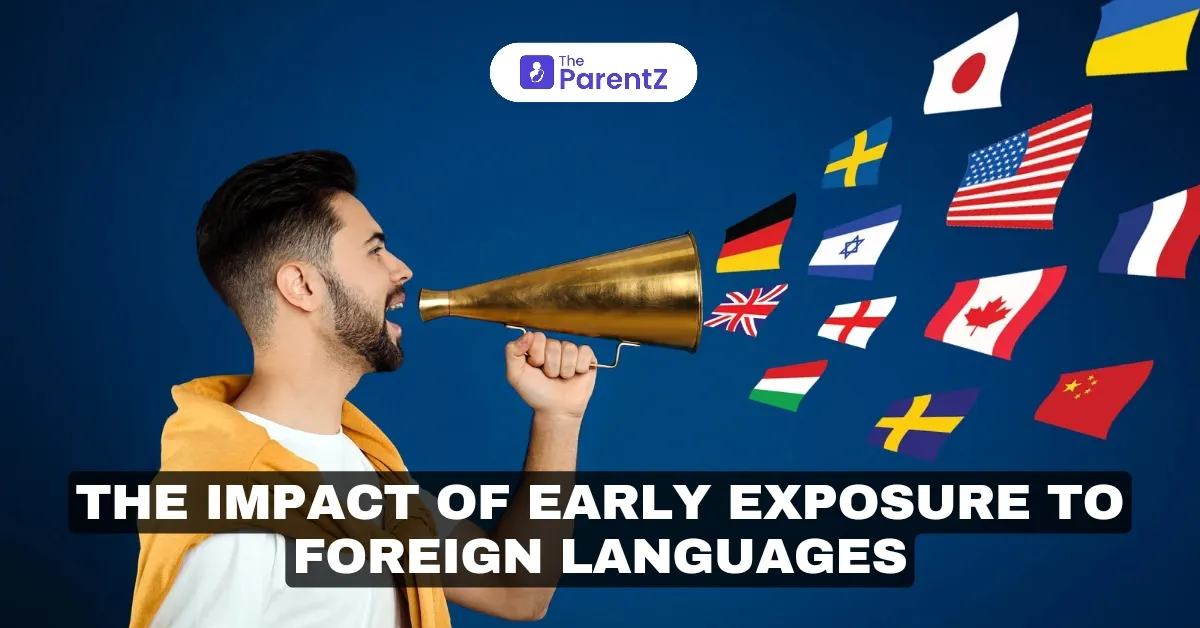In today’s interconnected and globalized world, the ability to speak more than one language is increasingly valuable. Multilingualism opens doors to diverse cultures, enhances communication, and provides a competitive edge in the workplace. But beyond these obvious advantages, early exposure to foreign languages can have a profound impact on a child’s cognitive, social, and academic development. Children who begin learning a second language at a young age are likely to develop enhanced cognitive abilities, improved social skills, and better career prospects in the future. This article explores the multifaceted benefits of early language exposure and offers insights into how parents and educators can support this process.
Cognitive Benefits of Learning a Language Early
One of the most significant advantages of early foreign language exposure is its positive effect on brain development. Young children’s brains are highly adaptable and capable of forming new neural connections at a rapid pace. Learning a foreign language stimulates this neuroplasticity, enhancing cognitive development in ways that extend beyond language acquisition itself.
- Memory enhancement: Learning new vocabulary, grammar rules, and sounds exercises a child's memory, strengthening it over time. Studies have shown that bilingual children often have better working memory and are more adept at multitasking compared to their monolingual peers. This cognitive flexibility can improve problem-solving skills and the ability to switch between tasks seamlessly.
- Problem-solving and creativity: Learning a new language involves recognizing patterns and solving linguistic puzzles, which helps develop a child's critical thinking and creativity. When children switch between languages, they practice focusing on relevant information while ignoring distractions, a skill that is transferable to other areas of life.
- Bilingualism and intelligence: Research suggests that bilingual children tend to score higher on standardized tests measuring intelligence and cognitive ability. Being able to think in two languages allows for a deeper understanding of language structures and enhances abstract thinking, which contributes to overall intelligence.
Social and Cultural Benefits
Language is more than just a tool for communication—it is deeply intertwined with culture. Children exposed to foreign languages early in life gain valuable social and cultural insights, which foster greater empathy and adaptability.
- Better communication skills: Children who learn multiple languages tend to be better communicators because they are exposed to diverse ways of expressing ideas and emotions. They can navigate different social situations with ease and often show greater empathy toward people from other cultures.
- Cultural understanding: Early language learners are more likely to develop a strong sense of cultural awareness. By learning a language, they also learn about the customs, traditions, and history of the people who speak it. This broadens their worldview and encourages open-mindedness.
- Adaptability: In today’s globalized society, being able to understand and adapt to different cultures is a valuable skill. Children who grow up bilingual are more comfortable navigating diverse environments, making them more adaptable and resilient in various social settings.
Academic and Career Advantages
The benefits of early language exposure extend into the academic realm and can set the stage for long-term success in school and beyond.
- Academic success: Research has shown that children who learn a foreign language early tend to perform better in other academic subjects, particularly in reading and math. Language learning sharpens cognitive skills like problem-solving and analytical thinking, which are essential for success in subjects like mathematics and science.
- Improved reading and writing skills: Bilingual children often have a better grasp of grammar, syntax, and vocabulary, which translates into improved reading and writing skills in both their native and second languages. This linguistic proficiency enhances their ability to comprehend complex texts and articulate their thoughts clearly.
- Career prospects: In an increasingly global economy, employers are actively seeking candidates with language skills. Bilingual individuals often have a competitive edge when applying for jobs, particularly in fields such as international business, diplomacy, education, and technology. Early exposure to foreign languages can open doors to a wide range of career opportunities in the future.
Challenges and How to Overcome Them
While early exposure to foreign languages has undeniable benefits, it is not without its challenges. However, with the right approach, these challenges can be overcome.
- Consistency and practice: One of the main challenges is ensuring consistent exposure to the second language. Parents and educators can address this by incorporating the language into daily routines through activities like storytelling, songs, and games.
- Access to resources: Not all families have easy access to language learning resources. Online tools, language immersion programs, and community groups can provide valuable support for families seeking to expose their children to a foreign language.
Conclusion
The benefits of early exposure to foreign languages are far-reaching, from enhanced cognitive abilities to improved social skills and expanded career opportunities. By supporting young children in their language-learning journeys, parents and educators are helping to equip them with the tools they need to thrive in an increasingly interconnected world. Language is a gift that keeps on giving, shaping not only the minds of children but also their futures








Be the first one to comment on this story.